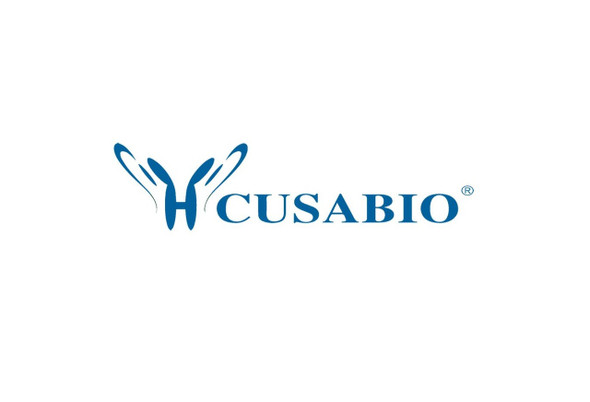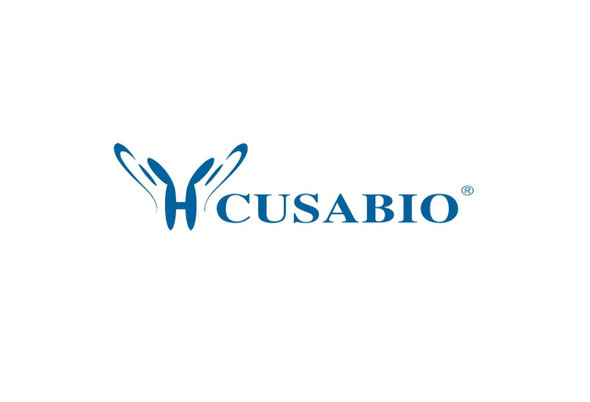Cusabio Human Recombinants
Recombinant Human Signal-regulatory protein gamma (SIRPG), partial | CSB-EP021338HU
- SKU:
- CSB-EP021338HU
- Availability:
- 13 - 23 Working Days
Description
Recombinant Human Signal-regulatory protein gamma (SIRPG), partial | CSB-EP021338HU | Cusabio
Alternative Name(s): CD172 antigen-like family member B Signal-regulatory protein beta-2 Short name: SIRP-b2 Short name: SIRP-beta-2 CD_antigen: CD172g
Gene Names: SIRPG
Research Areas: Immunology
Organism: Homo sapiens (Human)
AA Sequence: EEELQMIQPEKLLLVTVGKTATLHCTVTSLLPVGPVLWFRGVGPGRELIYNQKEGHFPRVTTVSDLTKRNNMDFSIRISSITPADVGTYYCVKFRKGSPENVEFKSGPGTEMALGAKPSAPVVLGPAARTTPEHTVSFTCESHGFSPRDITLKWFKNGNELSDFQTNVDPTGQSVAYSIRSTARVVLDPWDVRSQVICEVAHVTLQGDPLRGTANLSEAIRVPPTLEVTQQPMRVGNQVNVTCQVRKFYPQSLQLTWSENGNVCQRETASTLTENKDGTYNWTSWFLVNISDQRDDVVLTCQVKHDGQLAVSKRLALEVTVHQKDQSSDATP
Source: E.coli
Tag Info: N-terminal 6xHis-tagged
Expression Region: 29-360aa
Sequence Info: Extracellular Domain
MW: 40.8 kDa
Purity: Greater than 90% as determined by SDS-PAGE.
Relevance: Probable immunoglobulin-like cell surface receptor. On binding with CD47, mediates cell-cell adhesion. Engagement on T-cells by CD47 on antigen-presenting cells results in enhanced antigen-specific T-cell proliferation and costimulates T-cell activation.
Reference: "Molecular cloning of a novel human gene (SIRP-B2) which encodes a new member of the SIRP/SHPS-1 protein family."Ichigotani Y., Matsuda S., Machida K., Oshima K., Iwamoto T., Yamaki K., Hayakawa T., Hamaguchi M.J. Hum. Genet. 45:378-382(2000)
Storage: The shelf life is related to many factors, storage state, buffer ingredients, storage temperature and the stability of the protein itself. Generally, the shelf life of liquid form is 6 months at -20?/-80?. The shelf life of lyophilized form is 12 months at -20?/-80?.
Notes: Repeated freezing and thawing is not recommended. Store working aliquots at 4? for up to one week.
Function: Probable immunoglobulin-like cell surface receptor. On binding with CD47, mediates cell-cell adhesion. Engagement on T-cells by CD47 on antigen-presenting cells results in enhanced antigen-specific T-cell proliferation and costimulates T-cell activation.
Involvement in disease:
Subcellular Location: Membrane, Single-pass type I membrane protein
Protein Families:
Tissue Specificity: Detected in liver, and at very low levels in brain, heart, lung, pancreas, kidney, placenta and skeletal muscle. Expressed on CD4+ T-cells, CD8+ T-cells, CD56-bright natural killer (NK) cells, CD20+ cells, and all activated NK cells. Mainly present in the paracortical T-cell area of lymph nodes, with only sparse positive cells in the mantle and in the germinal center of B-cell follicles. In the thymus, primarily expressed in the medulla on mature T-lymphocytes that have undergone thymic selection.
Paythway: Osteoclastdifferentiation
Form: Liquid or Lyophilized powder
Buffer: If the delivery form is liquid, the default storage buffer is Tris/PBS-based buffer, 5%-50% glycerol. If the delivery form is lyophilized powder, the buffer before lyophilization is Tris/PBS-based buffer, 6% Trehalose, pH 8.0.
Reconstitution: We recommend that this vial be briefly centrifuged prior to opening to bring the contents to the bottom. Please reconstitute protein in deionized sterile water to a concentration of 0.1-1.0 mg/mL.We recommend to add 5-50% of glycerol (final concentration) and aliquot for long-term storage at -20?/-80?. Our default final concentration of glycerol is 50%. Customers could use it as reference.
Uniprot ID: Q9P1W8
HGNC Database Link: HGNC
UniGene Database Link: UniGene
KEGG Database Link: KEGG
STRING Database Link: STRING
OMIM Database Link: OMIM









